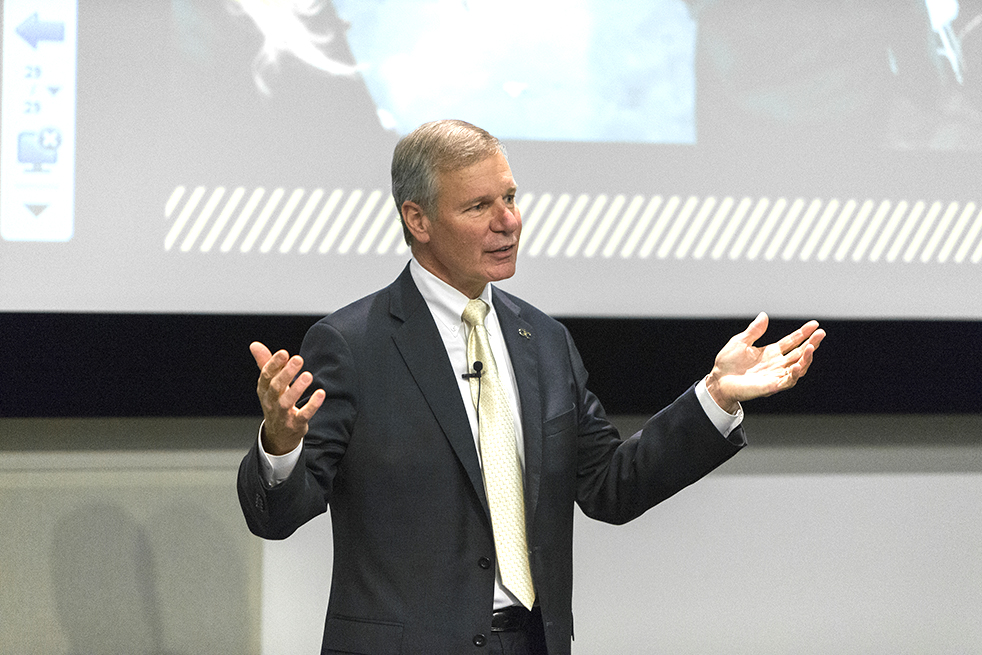On Aug. 27, Tech President G.P. “Bud” Peterson gave his annual institute address.
The main focus of Peterson’s speech was an administrative initiative given the name “The Next.” According to Peterson, the initiative’s success will be hinged upon Tech’s ability to stay on the cusp of emerging and developing technologies.
Peterson added that initiative, while most relevant in arenas such as research — where it is necessary that Tech stay competitive in fields in order to receive grants — “The Next” also applies to Tech’s residential housing. Peterson expressed that administration is looking for avenues through which to improve the on-campus housing situation, since a large portion of Tech’s student population continues to reside in Tech‘s campus housing options.
Peterson also discussed how the newly admitted freshman class of 2019 broke new ground for Tech. He noted that the percentage of the incoming class that was female was the highest in the institution’s history.
“The thing that really differentiates the students who we admit [is that] they are involved in other activities,” Peterson said. “[These students] are involved in leadership activities, they are involved in their communities and in their high schools, in their churches, in other civic activities, and because we think that those are the types of the people that are going to be able to change the world after they leave Georgia Tech.”
The Undergraduate Survey on Student Engagement was also a topic of discussion during Peterson’s address. The national survey, which is given to first and fourth-year students, features questions designed to measure students’ experience at their university or institution.
For the last iteration of the survey, 51 percent of Tech students who responded rated their overall experience as being excellent. Additionally, 39 percent of students rated the experience as good. Another question asked the students whether they would elect to attend their current school if they had the chance to be a high school senior again. For this question, 89% of Tech students who responded to the survey said that they would still choose Tech.
Peterson also discussed the opening of the Engineered Biosystems Building and how it will improve Tech’s multidisciplinary research potential. The building is currently 80 percent paid for, with commitments over the next five years in place to pay the rest.
Following the speech, Peterson took questions from the audience, which included members of the Presidents cabinet such as newly appointed Vice President of Campus Life John Stein as well as a number of members of the faculty, staff and student populations.
“As a student, it’s rather concerning to me that tuition has tripled over the past ten years,” remarked one student in the audience. “If the costs cannot go down, what can we do to ensure that we’ll stay as one of the best return-on-investment institutions in the world?”
Peterson explained that, when he arrived at Tech in 2009, Tech received more than $300 million in state appropriations, and that the amount has been reduced to $220 million.
“We’ve done a lot to try to improve efficiency, there are a number of administrative systems that we’ve put in place [in order to] operate more efficiently,” Peterson said. “But we need resources in order to maintain the quality of the education. If you look at US news and world report, and you look at Georgia Tech in 2009, the student to faculty ratio was 14 to 1. If you look at the last year’s US news and world report, it was 18 to 1.”
Peterson explained that, because of the administration’s concern regarding to rising student to faculty ratio combined with the steady decrease of state appropriations, the tuition increase was necessary. Unlike the last few years, state appropriation towards the University System of Georgia (USG) did increase for this year.
